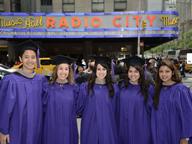School News
—
MBA student Troy Green discusses his investment strategies
—

Excerpt from CNBC -- "Everyone is worried about the economy, but overall you have to take the GDP numbers, you have to take the more macroeconomic factors as more of a 10,000-foot level and... in making specific investments, you have to narrow it down more to a company-specific investment and that's what I do in investing. That's what we do at Stern as well. I work in the student Michael Price investment fund and we're always looking at stocks. We're always evaluating different positions and poking holes in different theses..."
School News
—

Excerpt from CNBC -- "Everyone is worried about the economy, but overall you have to take the GDP numbers, you have to take the more macroeconomic factors as more of a 10,000-foot level and... in making specific investments, you have to narrow it down more to a company-specific investment and that's what I do in investing. That's what we do at Stern as well. I work in the student Michael Price investment fund and we're always looking at stocks. We're always evaluating different positions and poking holes in different theses..."















